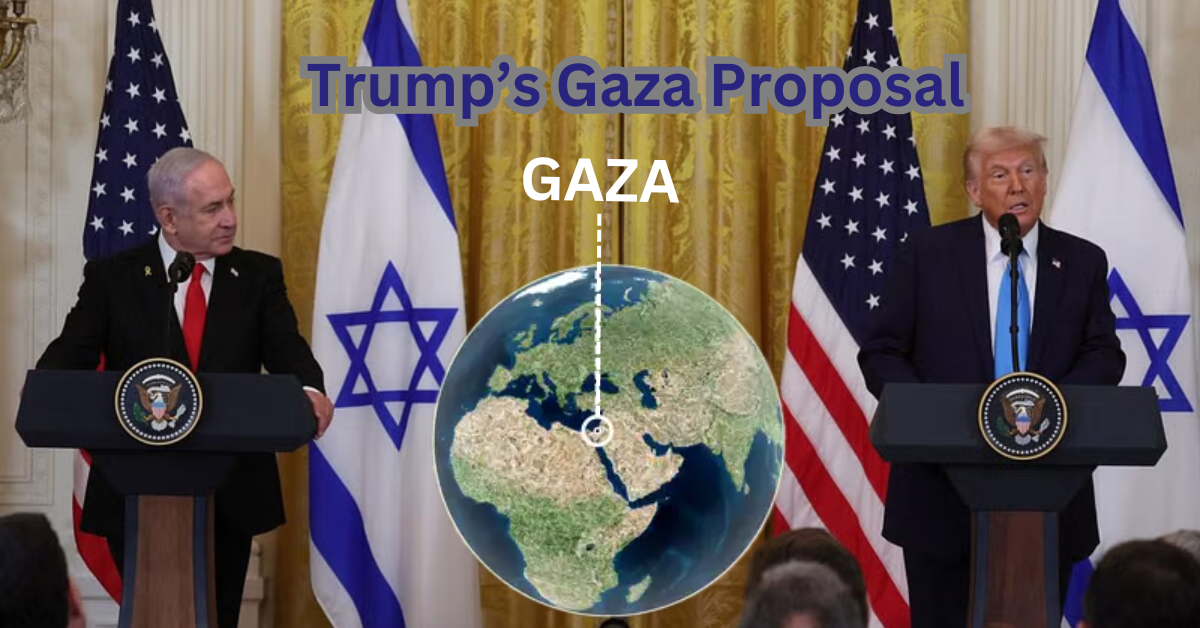Former U.S. President Donald Trump’s controversial suggestion that the United States should take control of the Gaza Strip and permanently relocate its Palestinian population has drawn widespread criticism from global leaders, humanitarian organizations, and political figures. The proposal, which Trump revealed during a press conference alongside Israeli Prime Minister Benjamin Netanyahu, has raised alarms over regional stability, international law, and the humanitarian crisis in Gaza.
A Radical Shift in U.S. Foreign Policy
During the press conference, Trump proposed that the U.S. assume control over Gaza, oversee its redevelopment, and relocate Palestinians outside the enclave. He envisioned transforming the war-ravaged territory into a prosperous economic zone, calling it the potential “Riviera of the Middle East.”
“The U.S. will take over the Gaza Strip, and we will do a job with it too,” Trump stated. “We’ll own it, be responsible for removing the dangerous elements, and create an economic development plan that provides unlimited job opportunities.”
However, the proposal has been met with fierce backlash, with critics accusing Trump of promoting forced displacement, violating Palestinian sovereignty, and disregarding international diplomatic efforts for a lasting peace.
Middle Eastern Leaders Reject the Plan
Key U.S. allies in the Middle East have swiftly condemned Trump’s suggestion:
- Saudi Arabia: Issued a strong statement reaffirming its commitment to a two-state solution and rejecting any forced displacement of Palestinians.
- Egypt & Jordan: Dismissed the idea of relocating over 2 million Palestinians, warning that such actions would destabilize the region and worsen the humanitarian crisis.
- Hamas: Labeled the proposal “dangerous and reckless,” accusing the U.S. of attempting to impose a new form of occupation under the guise of redevelopment.
International Backlash
Beyond the Middle East, global leaders have also expressed serious concerns:
- Australia: Prime Minister Anthony Albanese reiterated Australia’s support for a two-state solution and dismissed the idea as unrealistic.
- New Zealand: The Foreign Ministry affirmed its commitment to peace efforts and rejected any unilateral plans that undermine international consensus.
- United Nations: UN officials warned that forcibly relocating Palestinians would constitute a violation of international law, calling for diplomatic resolutions rather than unilateral actions.
U.S. Political Response
Trump’s proposal has sparked sharp criticism across the American political spectrum:
- Democratic Senator Chris Coons: Called the plan “offensive, dangerous, and foolish,” arguing that it damages U.S. credibility on the global stage.
- Representative Rashida Tlaib: Accused Trump of “openly advocating ethnic cleansing” by suggesting the mass resettlement of Palestinians.
- Humanitarian Groups: Organizations, including USAID, questioned the feasibility of Trump’s plan, given his past efforts to reduce U.S. foreign aid.
Context: Ongoing Conflict & Ceasefire Efforts
The proposal comes amid an ongoing ceasefire between Israel and Hamas, during which hostages have been exchanged in return for Palestinian prisoners. The conflict was reignited after Hamas launched an attack on Israel on October 7, 2023, killing approximately 1,200 people and taking over 250 hostages. In retaliation, Israel’s military campaign has led to over 47,000 Palestinian casualties, according to local health authorities, with more than half being women and children. The war has devastated Gaza, displacing nearly 90% of its 2.3 million residents.
Is Trump’s Proposal Even Feasible?
Many experts argue that Trump’s Gaza Proposal is not only politically unrealistic but also violates international law. The forced relocation of an entire population would be logistically impossible and widely condemned as ethnic cleansing. Furthermore, Trump has a history of making radical geopolitical statements—such as proposing to purchase Greenland—leading some to speculate that this latest proposal may be another attempt to shift public focus or gain leverage in negotiations.
Conclusion
With overwhelming global opposition, Trump’s Gaza proposal appears highly unlikely to gain traction. The international community continues to emphasize diplomatic solutions that respect Palestinian self-determination and uphold regional stability. As tensions persist, any future resolution will require careful negotiations, humanitarian considerations, and adherence to international law rather than unilateral declarations.
